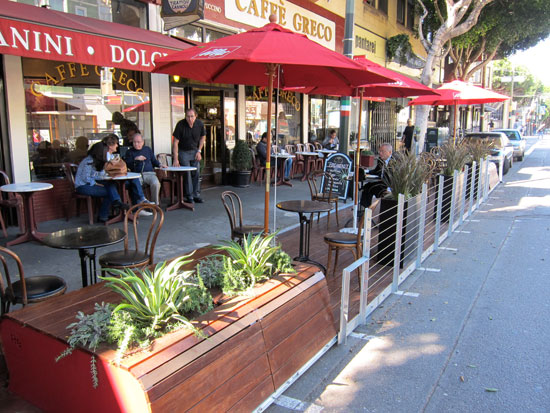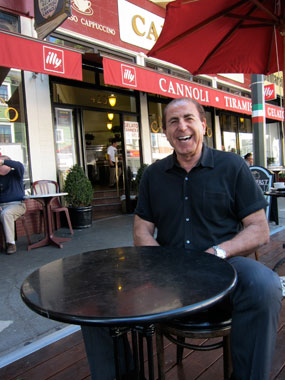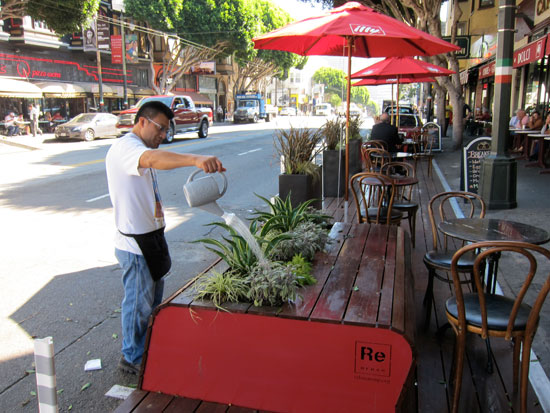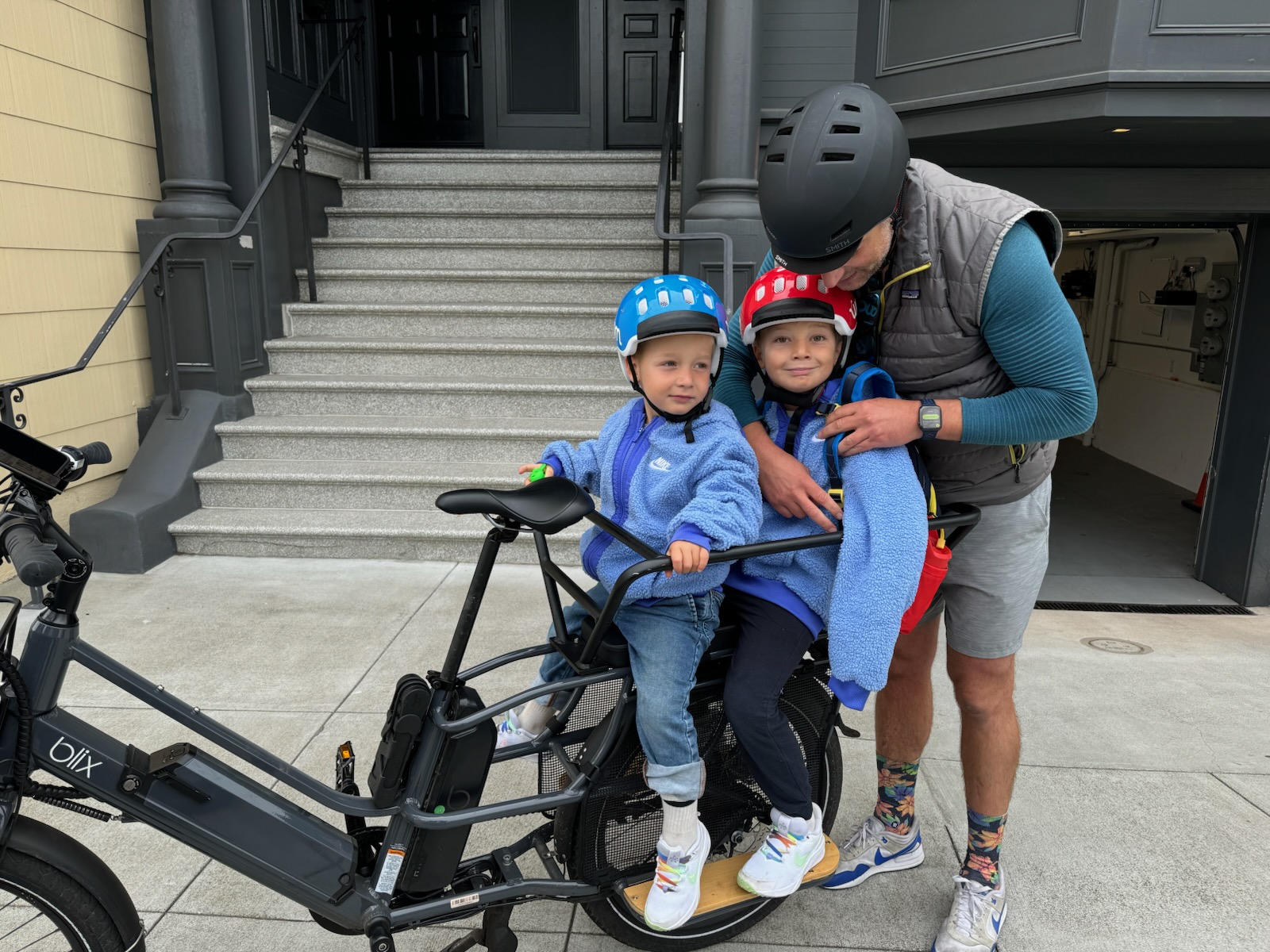
The newest parklet in San Francisco is in one of the densest, most walkable neighborhoods, North Beach, and the early reception is very promising. Rebar Group installed the parklet three days ago in front of Caffe Greco and the aesthetic resembles the parklet they built on 22nd Street in the Mission several months ago.
"You have merchants on Columbus Avenue all starting to look at the streetscape as a unified gesture," said Rebar's Blaine Merker. "The Caffe Greco parklet will probably be the first of several that will start to extend the European pedestrian culture into the parking lane in a more unified way."

The sidewalk extension occupies the equivalent of two former parking spaces and Hanna Suleiman, the owner of Caffe Greco, has no problem with the transition. "I think people talk about parking," he said, but "when they understand the dynamics of parking, the issue of parking is not even relevant any more."
Suleiman said enforcement of parking rules was nearly non-existent and many people abused handicapped placards. If the city wasn't collecting money from the meters in the first place, the argument couldn't be made that removing two spaces would deprive the city of meter money. He also argued even a modest increase in sales at his cafe would generate more money through sales tax receipts for city coffers than parking meters.
"It's really a kind of a misconception that we don't have parking," he added. "We have parking here. Most of the garages are empty during the week." He also noted if a driver had to pay $55 for a parking ticket, it would be a lot more economical to park just off Columbus in a garage. "It seems more logical for people to walk that extra two minutes and park in the public parking, but we're lazy by nature."
The cost of the parklet was paid for by a donation from the Wells Fargo Foundation and Illy Coffee. Suleiman also chipped in, and threw fundraisers to get donations from the community. The other merchants who originally resisted a semi-permanent sidewalk extension at the cost of parking spaces, said Suleiman, were now lobbying him for help developing their own and getting city approval.
"I would say almost 100 percent of the input is positive," he said.





